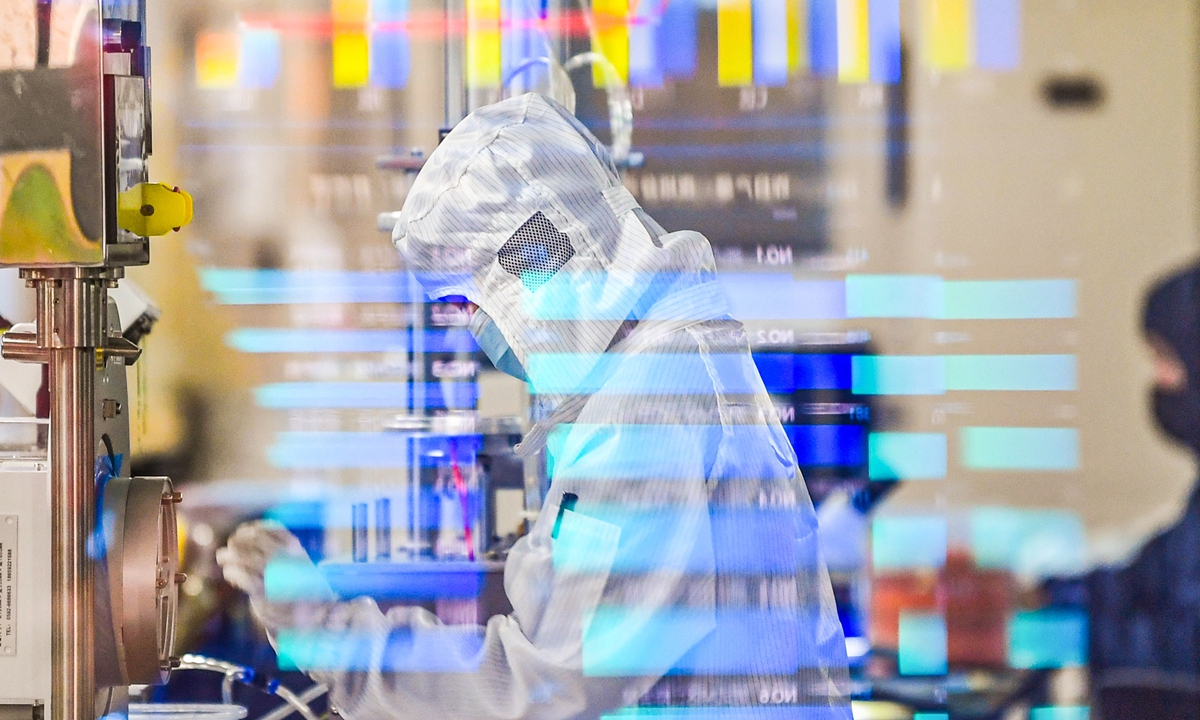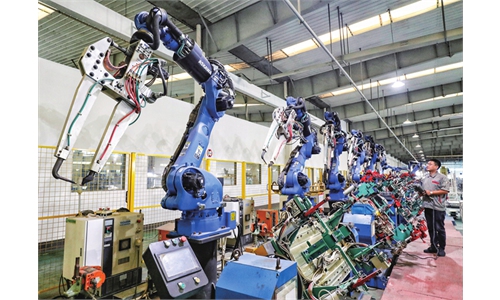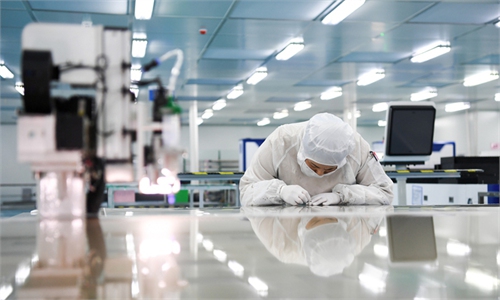China offers more tax benefits for high-tech innovation by semiconductor, mother-machine makers

A worker tests semiconductor chips in a factory in Yancheng, East China's Jiangsu Province, on April 14, 2023. Photo: VCG
A new tax policy announced by four Chinese government ministries aims to support research and development and innovation by semiconductor and industrial mother-machine enterprises.
The policy will encourage high-quality development, especially R&D investment by semiconductor and industrial mother-machine companies in the country, analysts said.
The US-initiated technology war against China has accelerated the drive by Chinese government and industries to develop independent technologies and invest more resources and manpower to promote high-tech progress analysts said.
For the entire calendar years from 2023 to 2027, the pre-tax deduction rate for R&D related expenses will increase from the current 100 percent to 120 percent, according to the joint document by the four ministries released on Monday.
If intangible assets are created during the period, they will be amortized on a pre-tax basis of 220 percent, up from 200 percent, read the document. Intangible assets can include such items as patents and trademarks.
The policy offers a tax break for high-tech firms, which will be encouraged and supported to increase their investment on R&D, Xiang Ligang, director-general of the Beijing-based Information Consumption Alliance, told the Global Times on Tuesday.
The new policy will significantly help boost profits and improve enterprises' cash flow, said industry insiders.
Taking the semiconductor sector as an example, it is estimated that the new regulation will raise the overall profit of the industry in the first half of 2023 by 5.4-8 percent.
Under the pressure of the US, Chinese enterprises need to spend more on R&D, and the new policy will be a catalyst for high-tech innovation, Fu Liang, an independent tech analyst, told the Global Times on Tuesday.
Deductions for pre-tax R&D spending have kept increasing. The number of enterprises above designated size that took such a deduction in 2022 rose by 16.3 percent from 2021, according to the National Bureau of Statistics.
"The US wants to use the tech war to suppress us and stop China's high-tech development, but we must not let matters slide - we must develop our own high technology," said Xiang.
In 2018, China's domestic chip supply was only 5 percent of the total. But now the proportion is nearly 30 percent, which is proof of the improvement of the semiconductor industry, said Xiang.
"From the perspective of enterprises, our huge market and talent reserve are sufficient. Some of the international cooperation that was hindered can be developed by Chinese enterprises. For the bottlenecks, the whole industry can cooperate to make breakthroughs," said Fu.
Analysts said the newly released Huawei Mate 60 Pro showcased China's breakthroughs in high-end semiconductor chips.
According to the document, chips enterprises refer to enterprises that are encouraged by the country to produce, design, equip, pack and test semiconductors.
Advanced industrial mother-machines - machines used to make other machines - cover 13 categories, including metal cutting machine tools, casting equipment, forging equipment, welding equipment, numerical control devices and vacuum systems, read the document.


